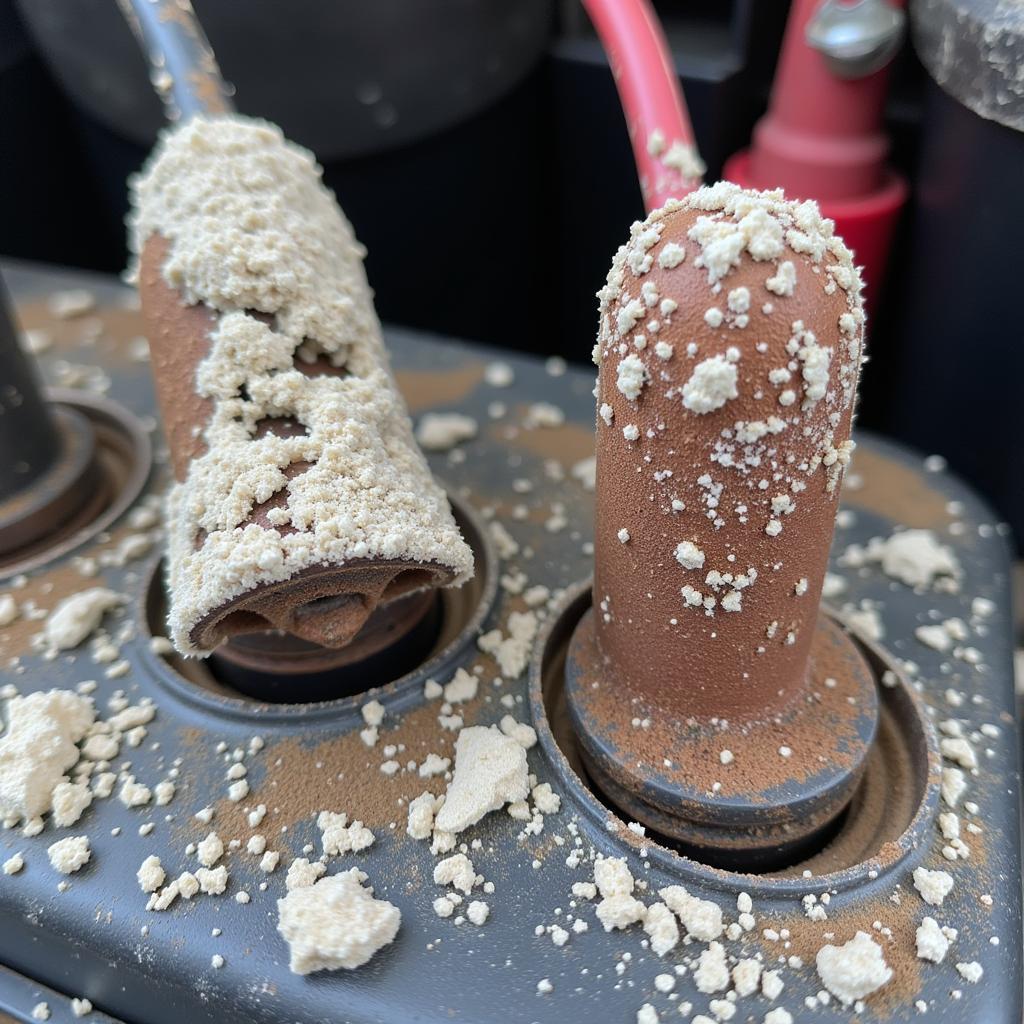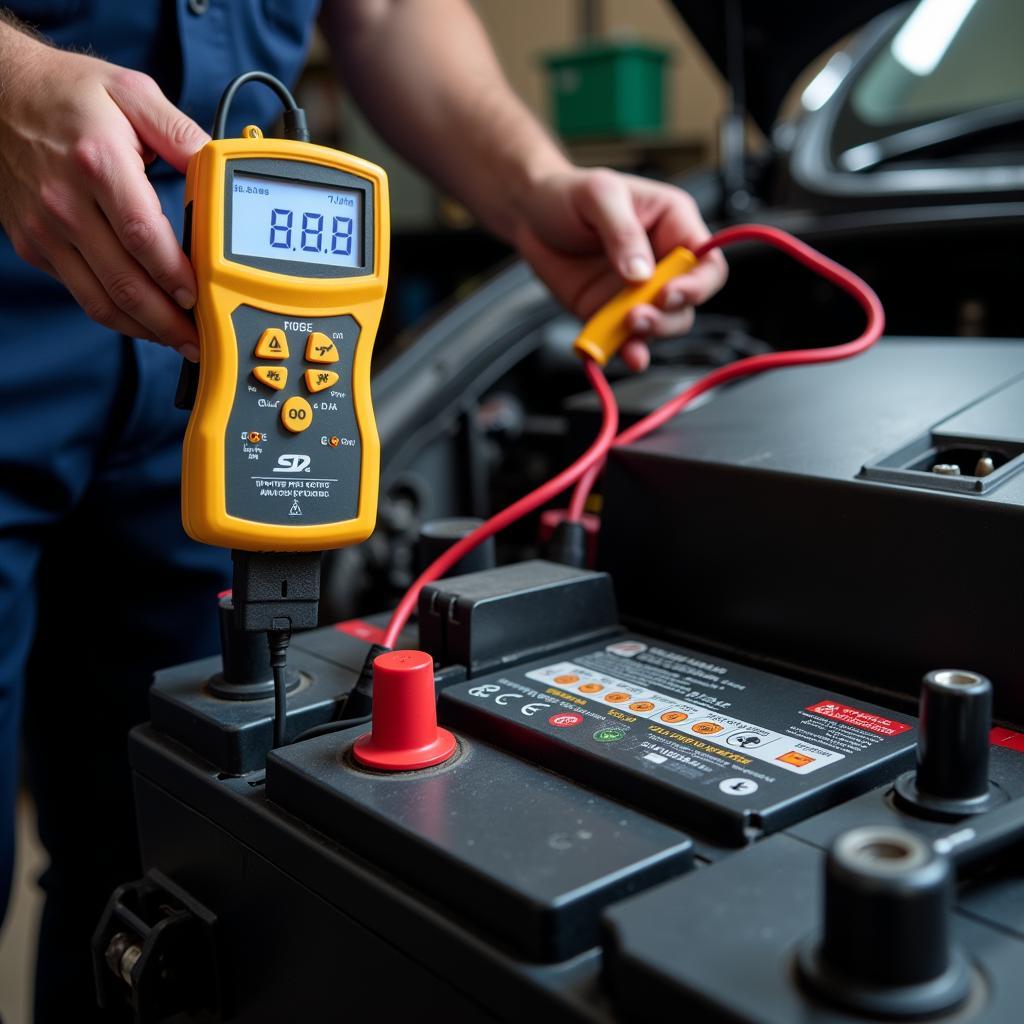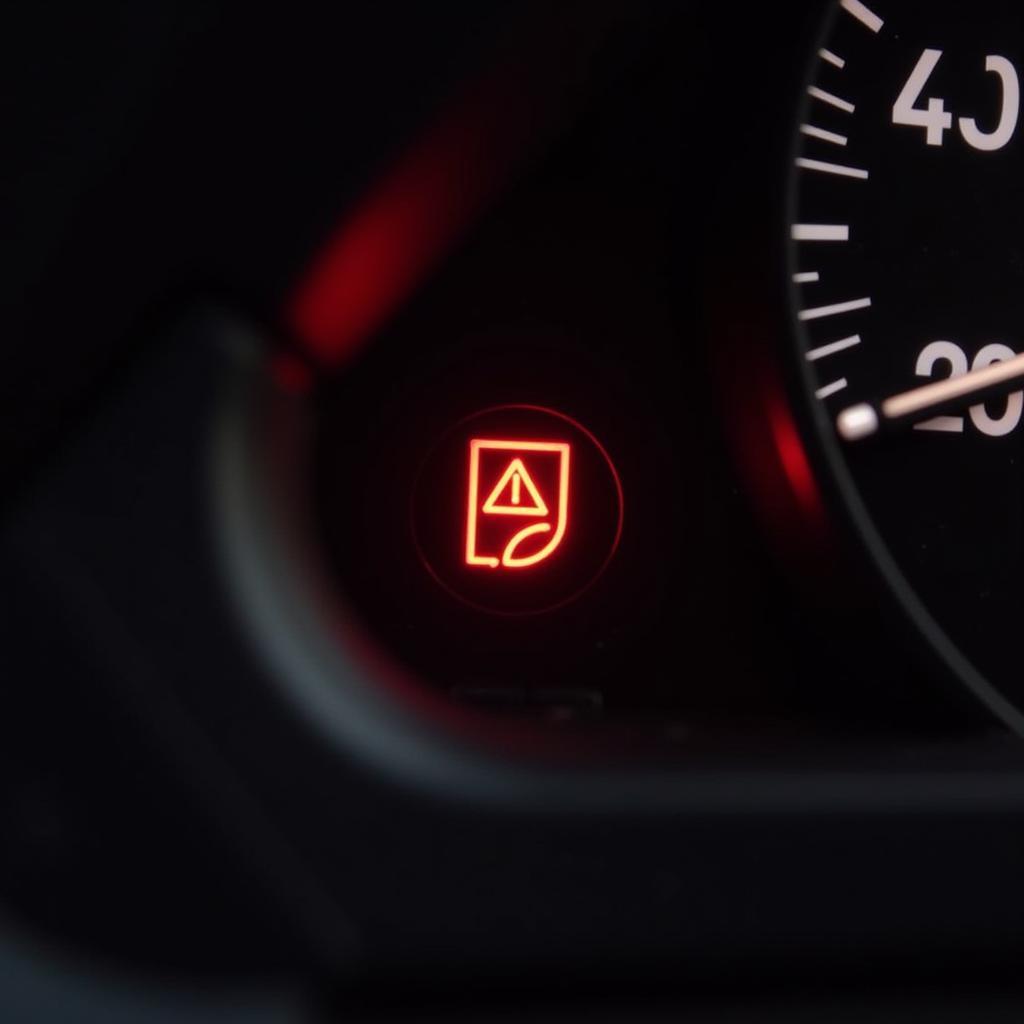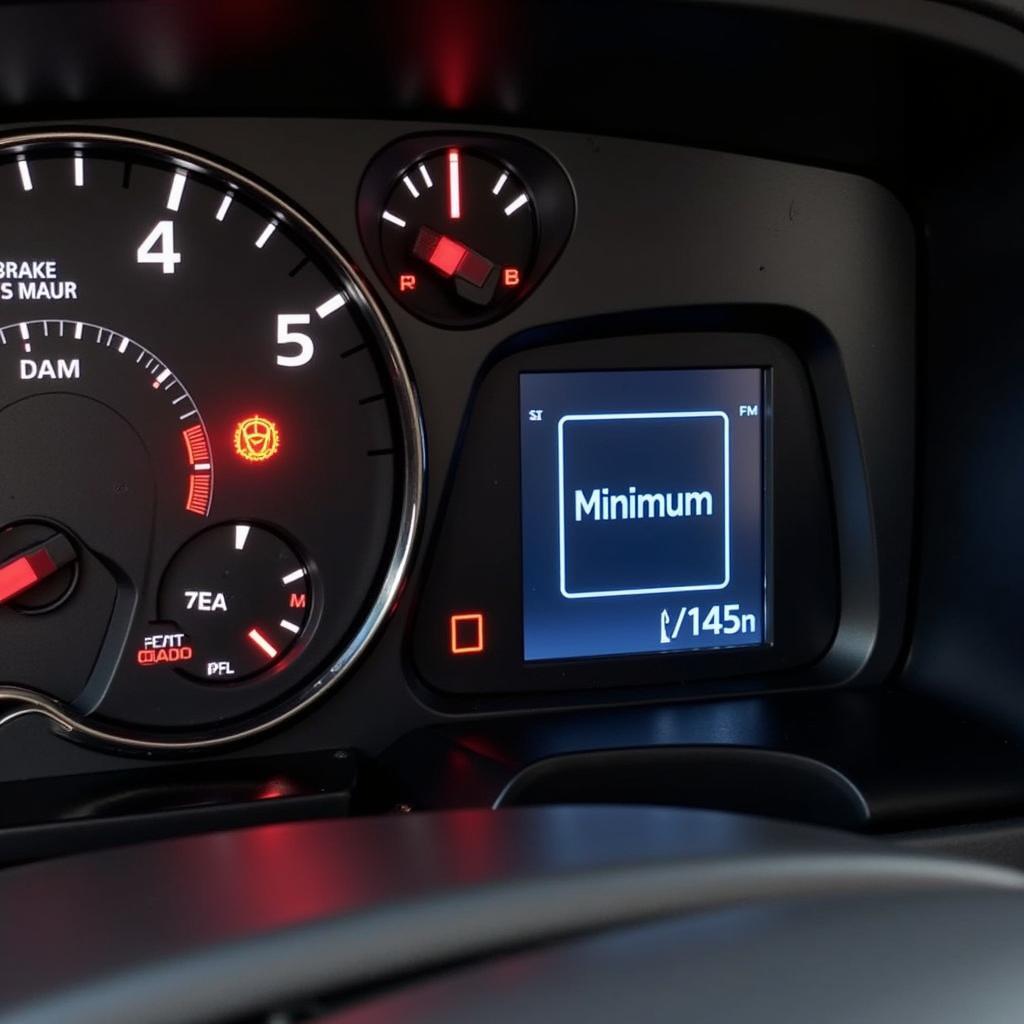A weak car battery can lead to a frustrating cascade of problems, from a simple click when you turn the key to complete immobility. Understanding the effects of a weak car battery is crucial for maintaining your vehicle and avoiding unexpected breakdowns. This article explores the common symptoms of a weak battery, its underlying causes, and offers effective solutions to keep your car running smoothly.
Recognizing the Telltale Signs of a Weak Car Battery
A dying battery often announces itself with several noticeable signs. Ignoring these early warnings can lead to more significant issues down the road.
- Slow Engine Crank: One of the most obvious signs is a slow engine crank. If your engine takes longer than usual to turn over or makes a groaning sound, it could indicate a weak battery struggling to provide sufficient power.
- Dim Headlights: Dim headlights, especially when the engine is idling, can point to a battery problem. The battery is responsible for powering the lights, and a weakened battery may struggle to provide adequate illumination.
- Electrical Malfunctions: A weak battery can affect various electrical systems in your car. You might experience issues with power windows, the radio, or even the interior lights flickering or malfunctioning.
- Clicking Sound When Starting: A rapid clicking sound when you turn the key is a classic sign of a dead or dying battery. This clicking indicates that the starter motor is receiving insufficient power to engage the engine.
- Dashboard Warning Lights: Modern cars often display dashboard warning lights related to the battery or charging system. Keep an eye out for these indicators, as they can signal a developing battery problem.
What Causes a Weak Car Battery?
Several factors can contribute to a weak car battery. Understanding these causes can help you prevent future battery problems.
- Extreme Temperatures: Both extreme heat and cold can significantly impact battery performance. Hot weather can accelerate the chemical reactions within the battery, leading to faster degradation. Cold weather can thicken the battery’s internal fluids, reducing its ability to deliver power.
- Old Age: Car batteries have a limited lifespan, typically ranging from three to five years. As a battery ages, its internal components degrade, reducing its capacity to hold a charge.
- Parasitic Drain: Even when the car is off, certain electrical components can continue to draw power from the battery, leading to a parasitic drain. This can be caused by faulty wiring, malfunctioning devices, or even leaving interior lights on.
- Corrosion: Corrosion on the battery terminals can hinder the flow of electricity, effectively weakening the battery’s connection to the car’s electrical system.
 Corroded Car Battery Terminals
Corroded Car Battery Terminals
Solutions for a Weak Car Battery
Addressing a weak car battery often involves a few straightforward solutions.
- Jump Starting: Jump-starting can provide a temporary boost to get your car running, but it doesn’t address the underlying battery issue. It’s essential to have the battery tested and potentially replaced afterward.
- Battery Testing: A battery test can determine the health and remaining capacity of your battery. This test can be performed at most auto parts stores or repair shops.
- Battery Replacement: If your battery is old or failing, replacement is often the most effective solution. Ensure you choose a battery with the correct specifications for your vehicle.
- Addressing Parasitic Drain: Identifying and fixing any parasitic drains is crucial to prevent future battery problems. This might involve inspecting wiring, checking for malfunctioning devices, and ensuring all lights and accessories are turned off when the car is not in use.
- Cleaning Battery Terminals: Regularly cleaning the battery terminals with a wire brush and a baking soda solution can help prevent corrosion and ensure a good electrical connection.
How to Extend Your Car Battery’s Life
- Regular Maintenance: Periodically checking and cleaning the battery terminals can prevent corrosion and extend battery life.
- Limiting Short Trips: Short trips prevent the battery from fully recharging, which can shorten its lifespan. Try to combine errands into longer drives whenever possible.
- Turning Off Accessories: Always turn off headlights, interior lights, and other accessories when the car is not running to prevent unnecessary battery drain.
 Mechanic Testing a Car Battery
Mechanic Testing a Car Battery
“Regular battery maintenance, like cleaning the terminals and limiting short trips, can significantly prolong its lifespan,” advises John Smith, ASE Certified Master Technician at Smith Automotive.
“A weak battery can cause all sorts of seemingly unrelated issues, from a slow crank to malfunctioning electrical systems. Getting your battery tested regularly is a simple way to avoid unexpected problems,” adds Jane Doe, Lead Technician at Doe’s Auto Repair.
Conclusion
Weak car battery effects can range from minor inconveniences to major breakdowns. Recognizing the signs of a failing battery, understanding the causes, and implementing preventive measures can help keep your vehicle on the road and avoid unexpected headaches. Remember, regular battery maintenance is key to ensuring reliable performance and a longer lifespan for your car’s battery.
FAQ
- How often should I test my car battery? Ideally, every six months or at the start of each change in season.
- Can I replace my car battery myself? Yes, but it’s important to follow safety precautions and ensure you choose the correct battery for your vehicle.
- What is the average lifespan of a car battery? Typically, three to five years, although various factors can influence this.
- How can I tell if my car battery is completely dead? If there’s no clicking sound when you turn the key and the dashboard lights don’t illuminate, the battery is likely dead.
- Does driving my car recharge the battery? Yes, the alternator recharges the battery while the engine is running.
- What are the signs of a bad alternator? Dim headlights, flickering dashboard lights, and a dead battery are potential signs of a bad alternator.
- How do I jump-start my car? Carefully connect jumper cables between your dead battery and a working battery, following the correct procedure.


